
It is tightly considered as science of life






process of detoxification
and cleansing







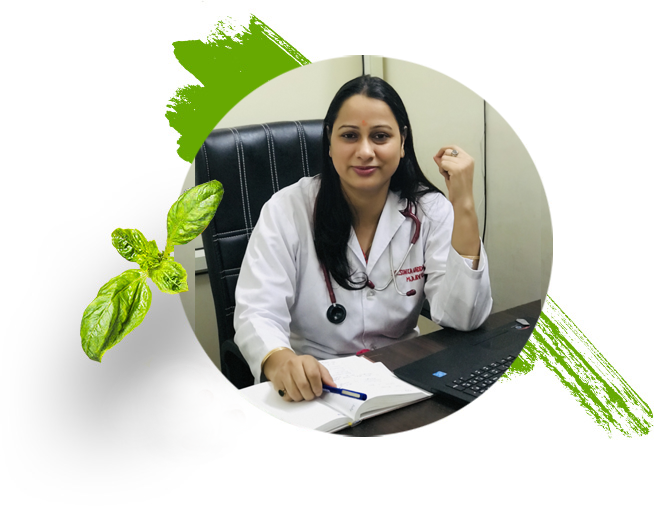
~ About Me ~
Treating your health naturally
I am Dr Sonika Nadda , an Ayurvedic practitioner dedicated to the holistic well-being of individuals through the ancient wisdom of Ayurveda. With a profound understanding of this traditional Indian system of medicine
My journey in Ayurveda began with a deep passion for natural healing and a commitment to understanding the intricate connections between mind, body, and spirit. I hold BAMS, PG DITETICS, MD PANCHAKARMA from RGUHS Bangalore, India, where I acquired the knowledge and skills essential for practicing Ayurveda.
~ My Ayurveda ~
Practice Photo Gallery
Check out these beautiful photos I’ve capture while practicing ayurveda.
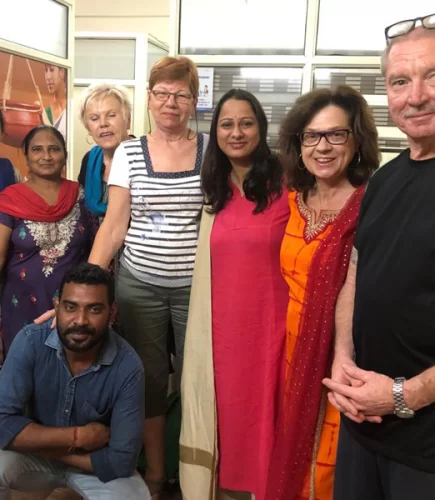
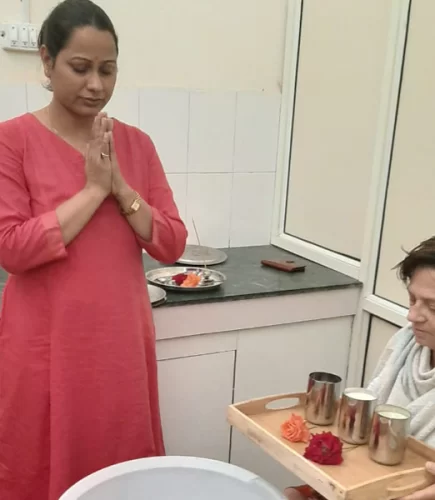
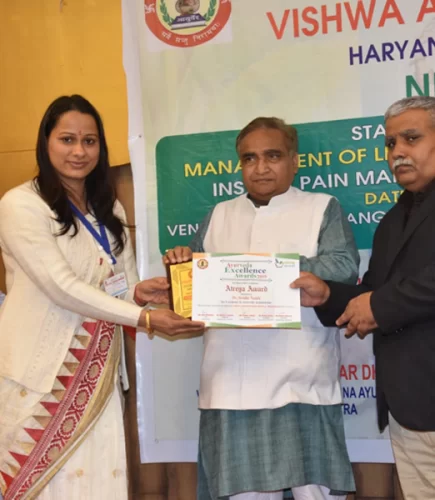
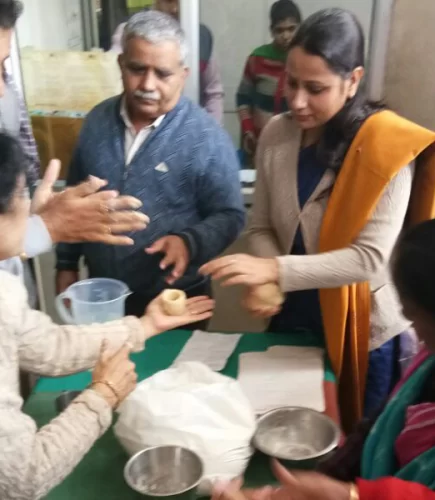
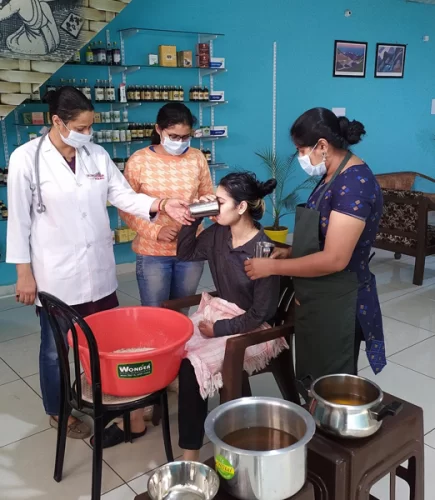
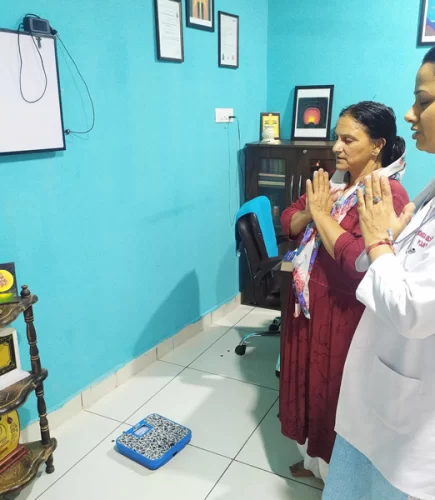
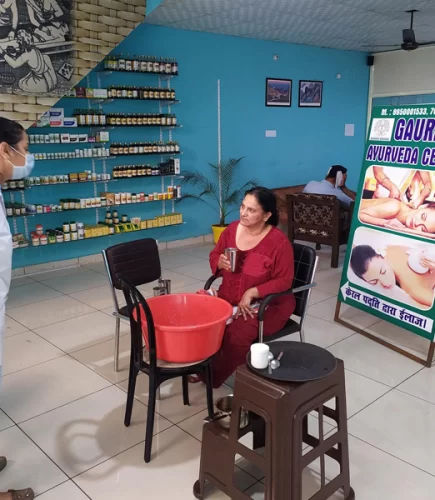
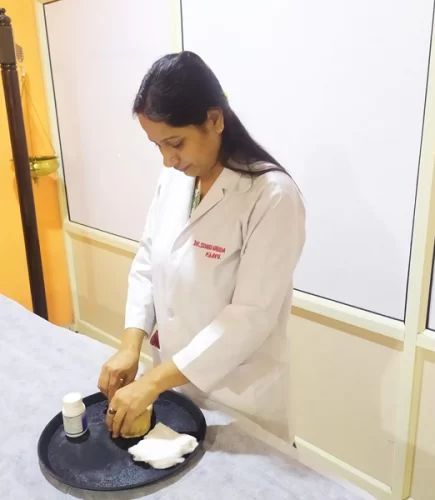
~ Success Stories ~
Hear the inspiring stories of real Dr. Sonika Nadda Clinic patients
~ FAQ'S ~
Some of the Most Frequently Asked Questions. Answered!
What is Ayurveda?
Ayurveda is the traditional and holistic system of medicine indigenous to India. The word Ayurveda has two Sanskrit components: ‘Ayu’, which means life and ‘Veda’, which means the knowledge; hence it is knowledge of life. This ancient system of medicine has evolved over time, integrating centuries of wisdom derived from practical, philosophical, religious illumination and intensive meditation adding years to life and life to years. It shows how our lives can be influenced, shaped, extended and ultimately controlled without interference from sickness or old age.
What is the basic component of Ayurveda treatment?
Ayurveda is a system of medicine with historical roots in the Indian subcontinent. Globalized and modernized practices derived from Ayurveda traditions are a type of alternative medicine. It was developed more than 3,000 years ago in India. In countries beyond India, Ayurvedic therapies and practices have been integrated into general wellness applications and in some cases in medical use.
Treatment process in Ayurveda is to correct faulty dietary and lifestyle habits. In most cases just by correcting the lifestyle all other corrections are naturally affected and based on the natural vitality of the system , health is regained. However, in people who have practiced a poor lifestyle for many years, vitality becomes weak. This necessitates assistance in the form of cleansing the body with unique detoxifying treatments. In Ayurveda, the therapies or medicines are employed to facilitate the body’s own mechanism of healing.
Treatment process in Ayurveda is to correct faulty dietary and lifestyle habits. In most cases just by correcting the lifestyle all other corrections are naturally affected and based on the natural vitality of the system , health is regained. However, in people who have practiced a poor lifestyle for many years, vitality becomes weak. This necessitates assistance in the form of cleansing the body with unique detoxifying treatments. In Ayurveda, the therapies or medicines are employed to facilitate the body’s own mechanism of healing.
Why try Ayurveda?
The history of Ayurveda goes back 5,000 years. At present there are more and more physicians from all over the world who are interested in it and who have adapted this medicinal system to our western society. Ayurveda and ayurvedic treatment techniques have been proven effective in many clinical studies. Ayurveda should be the first choice in case of chronic (drawn-out) illness, which can not be treated in a satisfactory manner by conventional medicine. Ayurveda aims not only to treat the sick person, but also to prevent illness in healthy people, who can get ill due to stress, family problems and so on. Therefore it is not possible to call Ayurveda, the science of life, merely as alternative medicine.
What are the advantages of Ayurveda medicine over conventional medicine?
Ayurveda being holistic is effective in treating diseases. Its provides individualized treatment and is conducive to socioeconomic conditions of India. With the availability of large number of formulations for any particular disease, use of food items as medicine and lifestyle awareness, Ayurveda enjoys a better place in respect of prevention and cure of the disease in comparison to western medicine system.
What importance do herbs have?
Herbs are gentle and natural treatment. They do not have any side effects, because they are compatible with the body’s own chemicals. They are absorbed easily and because of their different characteristics (desiccant/humid, incentive/sedative etc.) it is possible to choose exactly the right herbs which can cure in the given case depending on the illness.
What is panchakarma?
Panchakarma is a detoxification process and includes five karma or processes towards removal of accumulated toxins. These five procedures include the sneha vasti (enema with medicated oils), kashaya vasti (enema with decoctions), nasya (medication through the nose), vamana (cleansing through vomiting) and virechana (cleansing of bowels).
When is ‘Panchakarma’ needed?
Accumulation of toxins over time leads to aggravation of of a medical condition making it chronic. During such situations, mere medication may not be sufficient. Panchakarma is the preferred medical treatment to address a chronic medical condition and prevent recurrence.
What are the Panchakarma procedures?
The following five procedures come under Panchakarma procedures:
Vamana karma (Therapeutic emesis)
Virechana karma (Therapeutic purgation)
Anuvasana vasti (Oil/unctuous enema)
Asthapana vasti (Decoction based enema)
Nasya karma (Nasal administration of medicaments).
Before performing Panchakarma, preparatory procedures like Pachana (Digestion of toxic metabolites), Deepana (Increasing the digestive fire), snehana (oleation), swedana (fomentation) are essential. After performing Panchakarma, specific procedures, dietary regimen and lifestyles are required to be followed.
Vamana karma (Therapeutic emesis)
Virechana karma (Therapeutic purgation)
Anuvasana vasti (Oil/unctuous enema)
Asthapana vasti (Decoction based enema)
Nasya karma (Nasal administration of medicaments).
Before performing Panchakarma, preparatory procedures like Pachana (Digestion of toxic metabolites), Deepana (Increasing the digestive fire), snehana (oleation), swedana (fomentation) are essential. After performing Panchakarma, specific procedures, dietary regimen and lifestyles are required to be followed.
Does massage therapy come under Panchakarma?
No. Massage is a type of Shehana (oleation) process performed as a pre-operative procedure for Panchakarma. Massages are also indicated in various musculoskeletal and neurological disorders.
Can I get a Online consultation?
Yes. In the event you live far or you cannot visit our centre, you can book on-line.
~ My Articles ~
Latest From Blog
- December 31, 2024
- Dr. Sonika Nadda
Wrong Food Combinations in Ayurveda: A Guide to Modern Missteps
00






